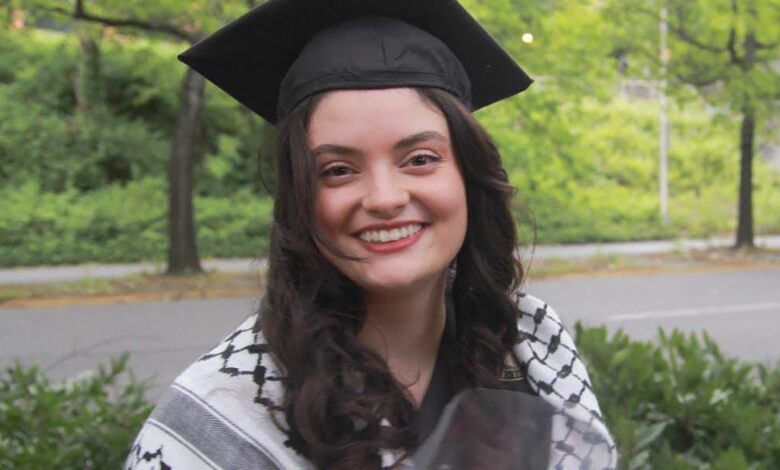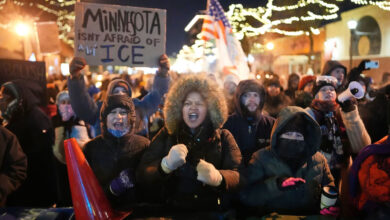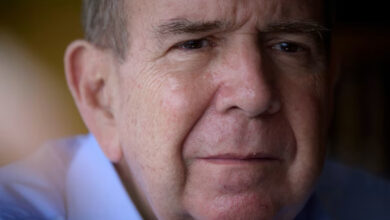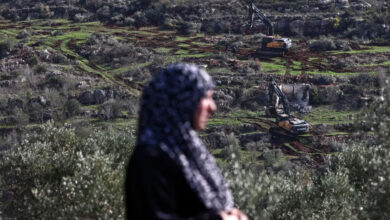
Two eyewitnesses told CNN that Aysenur Eygi was shot in the head by Israeli forces responding to a protest near the city of Nablus on Friday. The 26-year-old had been participating in a weekly protest against an Israeli settlement near the Palestinian village of Beita, they added.
Nablus Governor Ghassan Daghlas told CNN Saturday that an autopsy conducted at Al Najah University had “confirmed that Eygi was killed by an Israeli occupation sniper’s bullet to her head.”
CNN cannot independently verify the autopsy results, but has reached out to the Israel Defense Forces (IDF) for comment.
Previously, the Israeli military had admitted firing at the demonstrators, and a US National Security Council spokesperson said that the US had contacted Israeli officials to “request an investigation into the incident.”
But the family said that would not be enough.
“We welcome the White House’s statement of condolences, but given the circumstances of Aysenur’s killing, an Israeli investigation is not adequate,” the statement read.
“We call on President (Joe) Biden, Vice President (Kamala) Harris, and Secretary of State (Antony) Blinken to order an independent investigation into the unlawful killing of a US citizen and to ensure full accountability for the guilty parties.”
The statement also said Eygi “was killed by a bullet that video shows came from an Israeli military shooter.”
Eygi held both US and Turkish citizenship. US officials are looking into the deadly incident, and the Turkish government has said it holds Israel responsible for her death.
Turkish President Recep Tayyip Erdogan told an event in Istanbul on Saturday that Israel had “heinously murdered our young child.”
Eygi, who graduated from the University of Washington this spring, had been volunteering with the International Solidarity Movement (ISM), the same pro-Palestinian activist group as Rachel Corrie, a US citizen killed in 2003 while trying to block an Israeli bulldozer from razing Palestinian homes in Gaza.
In a statement, the Israel Defense Forces said that its troops “responded with fire toward a main instigator of violent activity who hurled rocks at the forces and posed a threat to them.”
The IDF is “looking into reports that a foreign national was killed as a result of shots fired in the area,” the statement added.
The ISM said none of its members threw rocks during the protest.
“Aysenur was more than 200 meters away from where the Israeli soldiers were, and there were no confrontations there at all in the minutes before she was shot,” it said in a statement.
“Regardless, from such distance, neither she, nor anyone else could have possibly been perceived as posing any threat. She was killed in cold blood.”
‘She was gentle, brave’
US Secretary of State Antony Blinken said the US was working to “gather the facts” of Eygi’s killing and offered condolences to her family – but did not suggest any immediate policy changes related to her death.
Even when there have been determinations that Israeli forces were responsible for the killings of Americans in the West Bank – such as Palestinian-American journalist Shireen Abu Akleh – the US has not altered its policies and has continued to provide significant military support to those forces.
National Security Council spokesperson Sean Savett said earlier the US was “deeply disturbed” by Eygi’s killing. “We have reached out to the Government of Israel to ask for more information and request an investigation into the incident,” he added.
US Ambassador to Israel Jack Lew confirmed that Eygi, who was born in Turkey, was the victim and said the embassy was “urgently gathering more information about the circumstances of her death.”
Turkey’s Foreign Ministry condemned Eygi’s death, saying it held the Israeli government responsible and confirming she was also a Turkish citizen. “We will follow up on bringing those who killed our citizens to justice,” spokesperson Oncu Keceli said.
The family’s statement commemorated Eygi as “a fiercely passionate human rights activist” who had also been active on campus in student-led protests “advocating for human dignity, and calling for an end to the violence against the people of Palestine.”
“Like the olive tree she lay beneath where she took her last breaths, Aysenur was strong, beautiful, and nourishing. Her presence in our lives was taken needlessly, unlawfully, and violently by the Israeli military,” it said.
“Aysenur was a loving daughter, sister, partner, and aunt. She was gentle, brave, silly, supportive, and a ray of sunshine.”
Protests at Beita are common. The Palestinian town is next to a ramshackle Israeli settler outpost known as Evyatar. The settlement was unauthorized by the Israeli state until it was legalized earlier this year. All Israeli settlements are considered illegal under international law.




